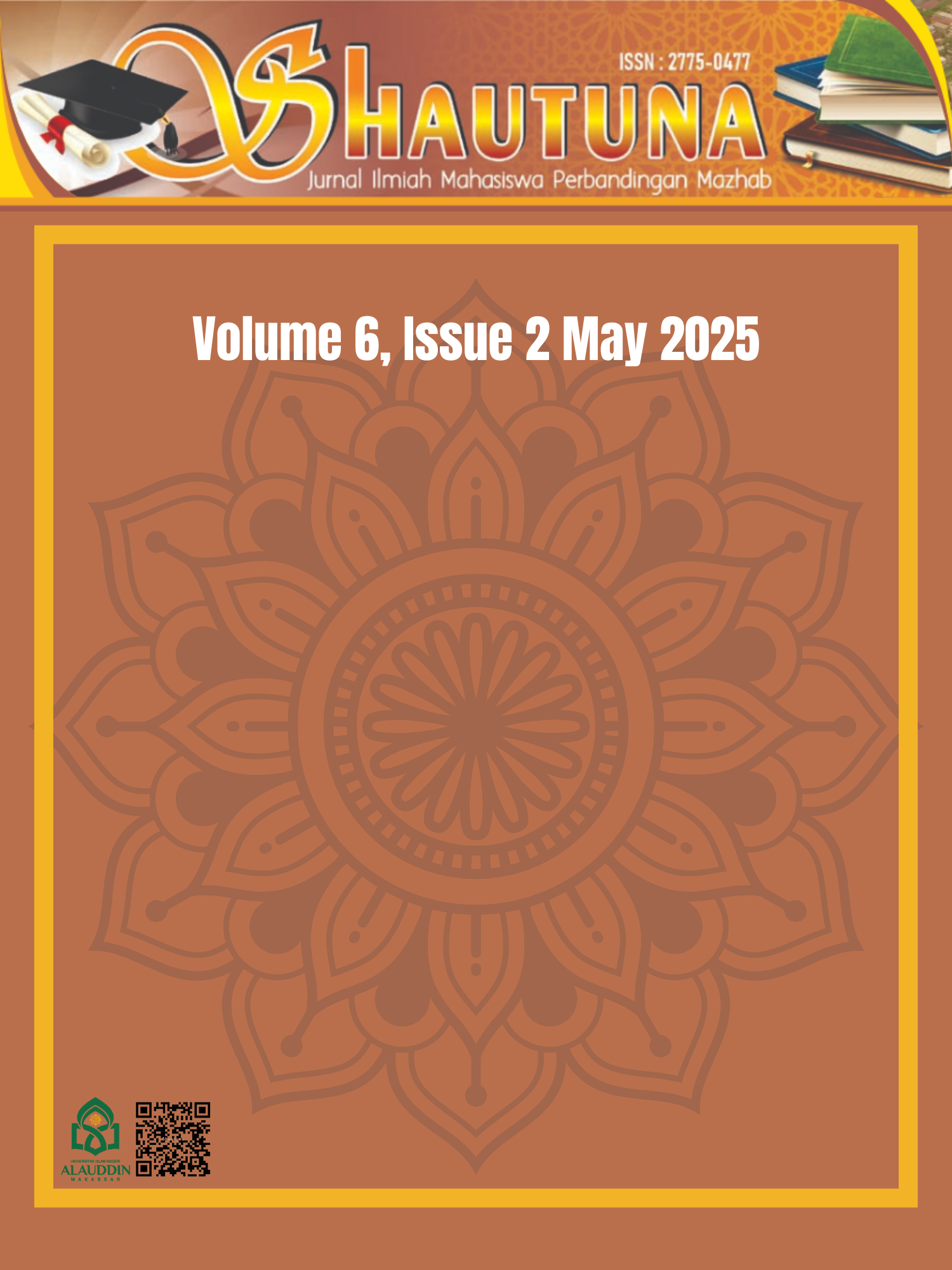Paradigma Fatwa Pemboikotan Produk Pro-Israel: Implikasi terhadap Pekerja Muslim di Kota Makassar
Implications for Muslim Workers in Makassar City
DOI:
https://doi.org/10.24252/shautuna.v6i2.54847Kata Kunci:
Fatwa MUI, Pemboikotan, Produk Pro Israel, Pekerja MuslimAbstrak
Penelitian ini mengkaji dampak Fatwa Majelis Ulama Indonesia (MUI) Nomor 83 Tahun 2023 yang merekomendasikan pemboikotan terhadap produk berafiliasi dengan Israel sebagai bentuk perjuangan solidaritas terhadap masyarakat muslim di Palestina. Fokus penelitian ini adalah mengungkap implikasi fatwa yang bersifat rekomendasi bagi pekerja Muslim yang bekerja di perusahaan terafiliasi dengan Israel di Kota Makassar, terutama dalam aspek ekonomi, sosial, dan profesional. Dengan menggunakan pendekatan fenomenologi dalam penelitian lapangan kualitatif dan analisis data kualitatif, penelitian ini mengkaji dilema yang dihadapi oleh pekerja Muslim dalam menyeimbangkan kepatuhan terhadap ajaran agama dan tuntutan professional dalam dunia kerja. Hasil penelitian menunjukkan bahwa fatwa MUI tentang Rekomendasi pemboikotan produk-produk yang terafiliasi Israel memiliki implikasi pada pengurangan jam kerja, pemutusan hubungan kerja, serta ketidakstabilan ekonomi bagi pekerja muslim di Kota Makassar. Selain itu, muncul tekanan sosial dan psikologis, seperti perasaan bersalah bagi mereka yang tetap bekerja di perusahaan yang terafiliasi dengan produk yang direkomendasikan untuk diboikot, serta ketegangan sosial di lingkungan kerja dan pandangan masyarakat terhadap para pekerja tersebut. Untuk mengatasi tantangan ini, para pekerja menerapkan berbagai strategi adaptasi, seperti mencari pekerjaan alternatif untuk mereka yang baru di perusahaan yang terafiliasi. Sedangkan bagi pekerja yang sudah lama mereka memilih untuk tetap bertahan dengan alasan stabilitas finansial yang dikhawatirkan akan menurun jika mengikuti rekomendasi dari fatwa tersebut. Implikasi penelitian ini menunjukkan bahwa fatwa ini memberikan tantangan bagi pekerja Muslim dalam mempertahankan keseimbangan antara komitmen agama dan stabilitas finansial. Oleh karena itu, diperlukan kebijakan yang lebih inklusif serta dukungan dari pemerintah, organisasi keagamaan, dan masyarakat guna membantu pekerja yang terdampak menghadapi konsekuensi ekonomi dan sosial dari fatwa tersebut.
Referensi
Achmad, Dirga, and Azlan Thamrin. “Anomali Fatwa Majelis Ulama Indonesia Dalam Sistem Hukum Indonesia: Telaah Hukum Responsif.” Al-Qisthu: Jurnal Kajian Ilmu-Ilmu Hukum 22, no. 1 (2024): 23–42. https://doi.org/10.32694/qst.v22i1.3011.
Ahsyam, Fauziah, Sitti Syaharana, Maya Alfira, Sudarmi Sudarmi, and Muchriana Muchran. “The Impact Of The Pro-Israel Product Boycott On Stock Prices Companies Registered On Bei.” International Social Sciences and Humanities 3, no. 1 (2024): 75–80. https://doi.org/10.32528/issh.v3i1.453.
Daviqna, Salsabilla Nur Sahara, and Restu Gilang Ramadhan. “Boikot Produk Afiliasi Pro Israel: Pro Dan Kontra,” n.d.
Unduhan
Diterbitkan
Cara Mengutip
Terbitan
Bagian
Lisensi
Hak Cipta (c) 2025 Husnul Rizka, Muhammad Said Anwar

Artikel ini berlisensi Creative Commons Attribution 4.0 International License.









